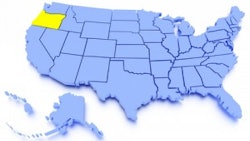The South American country became the first ever to legalize the sale of marijuana in May 2014, but regulatory bodies, police and pharmacies have yet to catch up with home growers and their steady clientele
In the back room of a store in the Uruguayan capital, connoisseurs pore over boxes of Ziploc bags containing seven varieties of marijuana, with names like “amnesia,” “chocolope”, “tangie” and “sour power”.
The stash belongs to members of the 420 Cannabis Club, who are collecting their monthly allowance of 40 grams, while the next harvest basks in the orange glow of sun lamps in a ventilated room upstairs.
“It gives me peace of mind being part of a club,” said María Aguirre, 40, as she picked eight bags of 10 grams each – four for her and four for her husband. She said street dealers sometimes try to make their customers take samples of cocaine, trying to get them hooked on more “dangerous and addictive” drugs.
In May 2014, then-president José Mujica signed groundbreaking regulations for Uruguay’s marijuana market, making the South American nation the first country in the world to legalize sales of the drug.


























